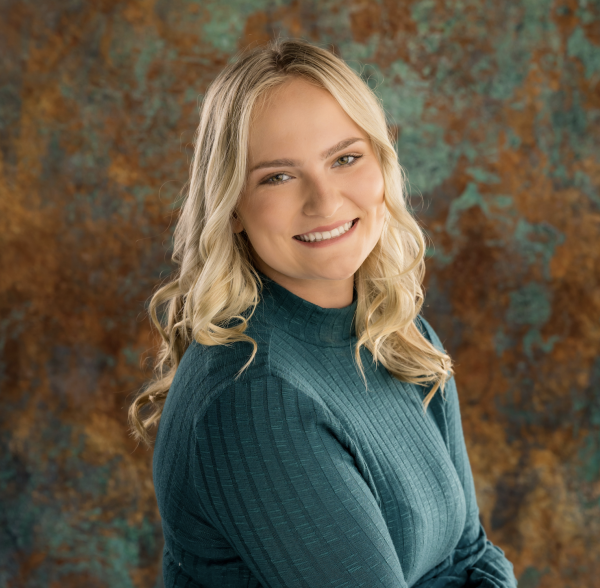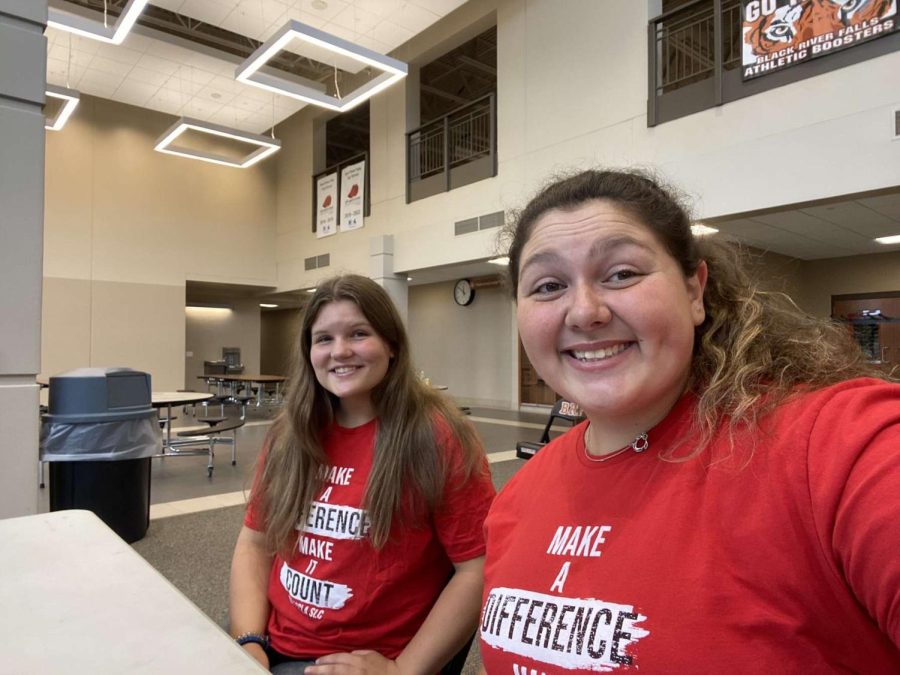FCCLA members take action
Gaier, Bergerson help during a national blood shortage
Two FCCLA members, Lauren Bergerson and Natalie Gaier, take action to make a difference in national blood shortage
By promoting blood drives by social media throughout the school year, two FCCLA members are hoping to help during a blood shortage.
FCCLA has been doing a chapter service project that helps with the Red Cross Association for over 23 years. This year with having a blood shortage, they were hoping to help make a difference in not only the community but also to help save others lives. There is also an impact of the numbers during a blood shortage. This chapter service project has not only impacted seniors Natalie Gaier and Lauren Bergerson, but it has also impacted the whole chapter.
“Students always can learn stuff by planning and running these events and stuff like that. I think they learn a lot through doing that as well. So not only are they getting the scholarship, they are helping their community. They’re helping people all over with the blood shortage. One pint can save three different people,” said FCCLA adviser Sarah Halverson.
While in the midst of a national blood shortage, the Red Cross relies on young donors to help make the blood shortage come to an end. Red Cross account manager Jason Levine, encourages young people to help donate because they play a huge role in helping.
“Approximately 20 percent of blood donations come from high schools, colleges and universities across the country. Young donors play an important part in helping support the nation’s blood supply,” said Levine. “The Red Cross encourages students to donate and continue to do so throughout their lifetimes. The need for blood is constant.”
The blood shortage has not only impacted the numbers of the blood drives that take place in Black River Falls, the community and student body involvement shows as well.
“The blood shortage has been making an impact that I have noticed anyway. We are seeming to have more student involvement and also just community involvement with people wanting to help,” said FCCLA member Lauren Bergerson.
When the donors donate their blood, they get an email stating where the blood has gone and how many lives they have saved with their one pint of blood. This helps donors realize what kind of difference they are making.
“Hosting the blood drives and donating makes me feel good knowing that I can see where my blood goes,” said FCCLA member Natalie Gaier. “Also, knowing that the donors coming to donate get the same notification seeing where their blood is going as well.”
Another way the Red Cross helps to get more donors is by giving back to the donors throughout the year to help encourage donors to donate and to also thank them for donating.
“The Red Cross uses a variety of different donor incentives ( Amazon Gift Cards, T-shirts, prize drawings, etc.) to help encourage donors to come in to donate. The incentives often are the little extra something that will influence some potential blood donors to come in to give. The Red Cross also uses incentives as a way to thank donors for their generosity and contributions to helping patients in need,” said Levine.
Advisor Sarah Halverson will continue to do the blood drives. She believes it is a great program and also an amazing opportunity for high school students to not only host but also to donate.
“It is such a good thing. The American Red Cross has done research that if you start donating at a young age, you will continue to donate and give back. The last few years have been at an all time low. Some of that has to do with COVID,” said Halverson, “But it’s just a great program. And the students who run the blood drive also receive scholarship money. So, it’s kind of a win-win in several different ways.”








